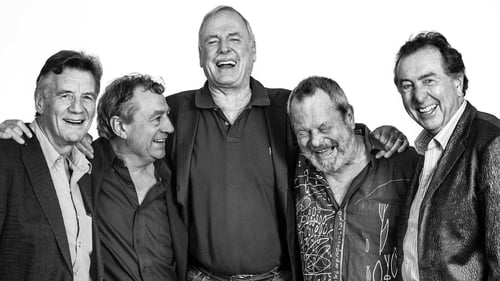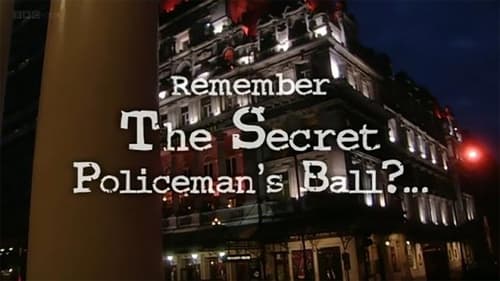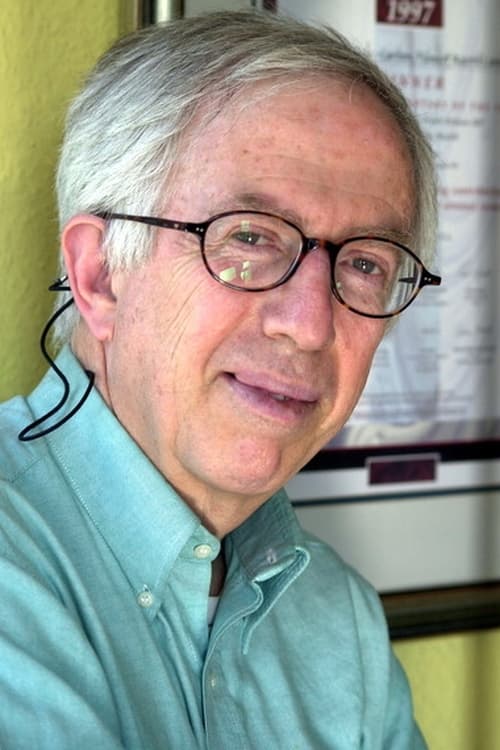Roger Graef
Nascimento : 1936-04-18, New York, New York, United States
História
Roger Arthur Graef OBE (born 18 April 1936) is a theatre director and filmmaker. Born in New York, he moved to Britain in 1962, where he began a career producing documentary films investigating previously closed institutions, including Government ministries and court buildings.

Director
With unprecedented access, this program reveals the humour, chaos and passion that went into bringing the Flying Circus to the stage cumulating in the legendary One Down, Five To Go.

Executive Producer
The documentary examines Amnesty International's successes and failures over the 50 years since it was founded.

Executive Producer
Stealing Klimt recounts the struggle by 90-year-old Maria Altmann to recover five Gustav Klimt paintings stolen from her family by the Nazis in Vienna. From the end of the War up until last year, these paintings hung in the Austrian National Gallery. The film covers Maria's early life in glittering fin-de-siècle Vienna, her dramatic escape from Nazi terror and her courageous fight to recover the five Klimt's against all the odds. Maria's fight to reclaim the paintings eventually took her to the United States Supreme Court and pitted her not just against Austria but also against the US Government which asked the Supreme Court to reject her case. After Maria finally emerged victorious in 2006, one of the paintings - the "Golden Portrait" of Maria's aunt, Adele Bloch Bauer - was sold to cosmetics tycoon Ronald Lauder for $135m, becoming the world's most expensive painting ever sold. The other four paintings were recently auctioned at Christie's for record prices.

Producer
The Secret Policeman benefit shows for Amnesty International brought together comedy grand masters - from Python and Beyond the Fringe - and performers then relatively unknown, like Rowan Atkinson. Narrated by Dawn French, the programme includes interviews with many of the comedians and musicians who took part: John Cleese, Stephen Fry, Michael Palin, Sting, Lenny Henry and many more. The shows and their stars had a huge effect on modern British comedy. There are few comics today whose careers have not been heavily influenced by the anarchic and surreal humour of these events.

Producer
A documentary film crew go into Feltham young offenders prison where the teenagers who left are 75% likely to re-offend. The film talks to a handful of inmates about life in prison and how they got there in the first place. Oh yeah - and it's a musical!

Director
A drama-documentary reflecting the pressures afflicting the modern police community both at work and home. About a London cop who transfers to the country, and his wife who joins the anti-nuclear lobby.

Writer
A drama-documentary reflecting the pressures afflicting the modern police community both at work and home. About a London cop who transfers to the country, and his wife who joins the anti-nuclear lobby.

Producer
Following the success of the 1979 show and the financial benefits accruing to Amnesty from the spin-off movie, TV special and record albums – Cleese, Lewis and Walker planned the next show to be a more spectacular event. Cleese focused on broadening the comedic talent to be presented at the show. In addition to the Amnesty show stalwarts drawn from the Oxbridge/Monty Python/Beyond The Fringe orbit, he invited newcomers such as Rowan Atkinson’s colleagues from the BBC TV show Not the Nine O'Clock News including Pamela Stephenson and Griff Rhys Jones; comedian Victoria Wood and regional comic Jasper Carrott. Lewis secured a return appearance by Billy Connolly and a debut appearance by "alternative" comedian Alexei Sayle who Lewis had recently discovered and was managing. Building on the success of Pete Townshend's 1979 appearance Lewis recruited other rock musicians to perform at the 1981 show including Sting, Phil Collins, Eric Clapton, Jeff Beck, Donovan and Bob Geldof.

Director
Amnesty decided not to present a benefit show in 1978 in order to consider how to make better use of the performing talent so favourably disposed to assist it in raising funds. Peter Luff left Amnesty in 1978 and the organisation's new fund-raising officer, Peter Walker, was deputed to work with Lewis on reconfiguring the show to raise more money and greater awareness of Amnesty. Lewis proposed to Cleese that in addition to the comedy performances the show should feature some contemporary rock musicians. Cleese delegated this responsibility to Lewis who recruited Who guitarist Pete Townshend to perform, as well as New Wave singer-songwriter Tom Robinson.

Producer
In May 1977 a second Amnesty benefit was held to build on the success of the first show and with the intent of developing momentum for a regularly-scheduled benefit show.

Director
In May 1977 a second Amnesty benefit was held to build on the success of the first show and with the intent of developing momentum for a regularly-scheduled benefit show.

Director
The first of the Amnesty International comedy benefit galas. The title is a play on the phrase at Her Majesty's pleasure (the show was performed at Her Majesty's Theatre, London). This show came to be considered part of the Secret Policeman's Ball series of shows that it inspired, although it pre-dated the first show in the series by three years. The event was organized by a team of three: Monty Python member John Cleese, Amnesty's Assistant Director Peter Luff and Transatlantic Records executive Martin Lewis. It featured the cream of Britain's comedic talent of the era, setting a precedent that would inspire many subsequent Amnesty galas...

Director
Directed by Roger Graef.

Young Socialists from Glasgow, Liverpool and Swansea march to London and discuss their economic struggles en route. Supporting them are Ken Loach, Corin Redgrave, Arnold Wesker and other leading cultural figures of the left of British politics. The march is intercut with scenes dramatising parallel injustices in the English Civil War era and earlier - featuring Frances de la Tour in queenly mode as Elizabeth I. The film's unconventional structure also features frequent extracts of the rousing pop concert, with the band Slade, which culminated the epic march.

Director
A look into the life of Brett, a boy born without arms due to thalidomide exposure.

Director
The Alberts (Bruce Lacey, Tony Gray and his brother Dougie Gray) attempt to take off. There are two edits of this film, both with their own distinct ending.



